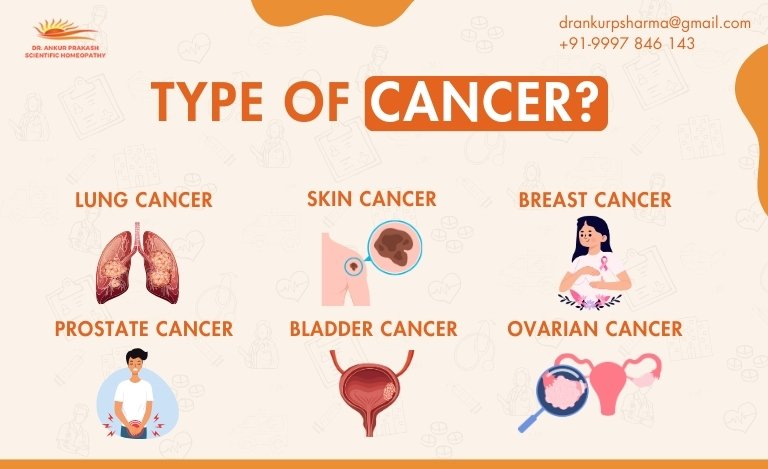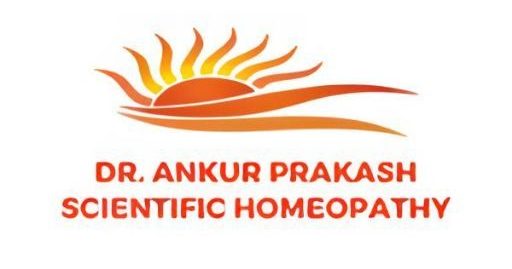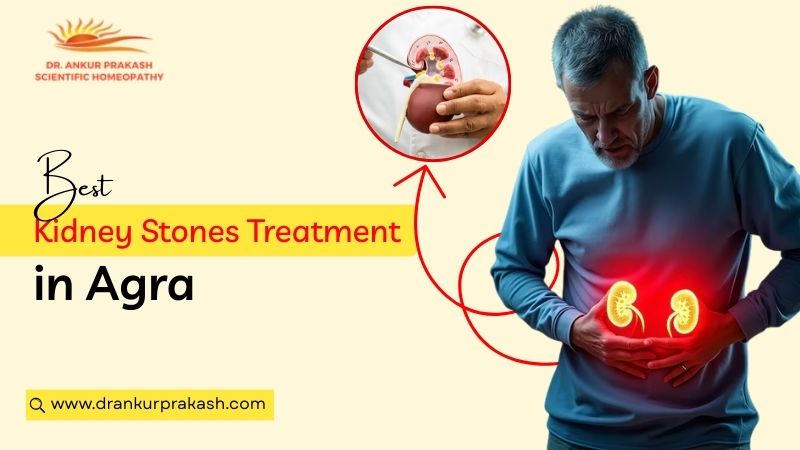What is Cancer?
Cancer is a condition where cells grow uncontrollably, disrupting normal body functions. It’s a complex disease impacting millions worldwide, requiring awareness and understanding. While each journey is unique, early detection and informed treatment choices make a difference. Knowing the basics about cancer can empower individuals to take proactive health steps and support those affected.
Types of Cancer

1.Lung Cancer
Originates in the lungs.
Often associated with smoking, though non-smokers can also develop it.
Symptoms may include persistent cough, chest pain, and shortness of breath.
2. Skin Tumor
Begins in the skin, commonly due to UV exposure.
Types include melanoma, basal cell carcinoma, and squamous cell carcinoma.
Look for changes in moles, unusual skin patches, or sores that don’t heal.
3. Breast Cancer
Develops in breast tissue, usually in the ducts or lobules.
Symptoms include lumps in the breast, changes in breast shape, or nipple discharge.
Risk factors include family history, age, and certain genetic mutations.
4. Prostate Tumor
Found primarily in older men, originating in the prostate gland.
Symptoms may include difficulty urinating, pelvic discomfort, and blood in urine.
Screening often includes PSA blood tests and digital rectal exams.
5. Colorectal Cancer
Starts in the colon or rectum.
Symptoms of Colon Cancer include changes in bowel habits, rectal bleeding, and abdominal discomfort.
Linked to diet, lifestyle, and genetic factors.
6. Lymphoma
Affects the lymphatic system, including lymph nodes and immune cells.
Includes Hodgkin and Non-Hodgkin lymphoma.
Symptoms can include swollen lymph nodes, fever, and unexplained weight loss.
7. Leukemia
Cancer of blood-forming tissues, including bone marrow.
Leads to abnormal white blood cell production.
Symptoms may include fatigue, frequent infections, and easy bruising or bleeding.
8.Pancreatic Cancer
Begins in the Pancreas.
Symptoms often appear late and can include jaundice, weight loss, and abdominal pain.
Risk factors include smoking, obesity, and family history.
9. Ovarian Cancer
Affects the ovaries in women.
Symptoms may include bloating, pelvic pain, and changes in appetite.
Risk factors include family history and certain genetic mutations.
10. Bladder Cancer
Originates in the bladder lining.
Symptoms include blood in urine, pain during urination, and frequent urination.
Smoking and exposure to certain chemicals can increase risk.
Signs
Recognizing the early signs of cancer can save lives, as catching symptoms early often leads to better outcomes. Here are some important signs to look out for:
Unexplained Weight Loss: Losing weight without a clear reason or changes in your diet or exercise routine can be a warning sign. This sudden weight loss might be an indicator of certain cancers.
Persistent Fatigue: If you’re feeling extremely tired, even with rest, it could be a sign of something serious. Certain malignant tumors affect energy levels, leaving you constantly drained.
Changes in Skin: Skin changes, such as unusual yellowing, darkening, or persistent redness, might be linked to skin cancer or other types. Keep an eye on any spots that change or sores that don’t heal.
Persistent Cough or Hoarseness: A lingering cough or changes in your voice that won’t go away could signal lung or throat-related issues. If it lasts, it’s best to have it checked.
Unusual Bleeding or Discharge: Blood appearing in unexpected places, like urine or stool, is concerning and should be addressed promptly, as it can sometimes be linked to certain Tumor.
Lumps or Swelling: Feeling a lump or unusual swelling in areas like the breast, testicles, or lymph nodes can be an early indicator. New or changing lumps should be examined by a healthcare professional.
Causes of Cancer
Understanding the symptoms of cancer can make a big difference in early detection. Here are some common signs to be aware of:
Genetic Mutations: Changes in DNA can lead to Tumor by causing cells to grow uncontrollably. Some people inherit genetic mutations that increase their risk of developing malignant tumors.
Tobacco Use: Smoking and using tobacco products are major causes of Tumor, especially lung, mouth, and throat cancers.
Radiation Exposure: High levels of radiation from sources like the sun (UV rays) and certain medical tests can damage cells, increasing the risk of skin and other types of malignant tumors.
Poor Diet and Obesity: An unhealthy diet and being overweight can contribute to malignant tumors such as colon, breast, and liver cancer.
Environmental Pollutants: Exposure to harmful chemicals in the environment, like asbestos and benzene, can raise the risk of developing cancer over time.
Viruses and Infections: Certain viruses, like HPV and hepatitis, can cause infections that may lead to cancers such as cervical and liver cancer.
Alcohol Consumption: Drinking excessive alcohol is linked to cancers of the liver, throat, and esophagus.
Hormonal Imbalances: Some cancers, like breast and ovarian Tumor, can be influenced by hormonal changes in the body.
Aging: As we age, our cells undergo more mutations, making older individuals more susceptible to malignant tumors.
Treatment
Homeopathy provides a complementary cancer treatment approach. The purpose is to allow the body to heal itself. Most patients seek homeopathy treatment for cancer, which is an alternative therapy dealing with the whole patient on the basis of symptoms and needs. A cancer doctor in India can lead the way for a well-crafted personalized plan under his or her guidance that would help in enhancing the quality of life and controlling symptoms alongside conventional treatments. It does not substitute for conventional treatments but is acknowledged for the possibility of enhancing well-being and additional support in the cancer journey.
In conclusion
Understanding the symptoms of cancer and its various causes is essential for early detection and effective treatment. While conventional treatments are vital, complementary therapies like homeopathy can offer additional support for patients.








